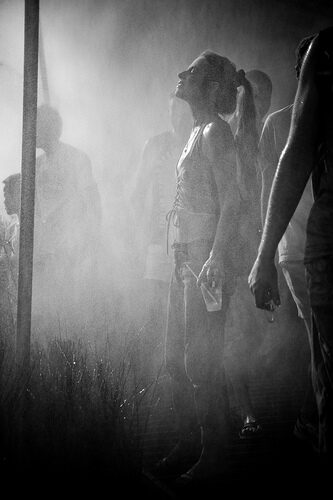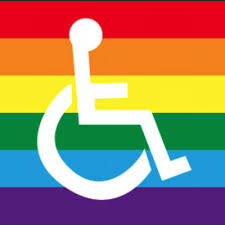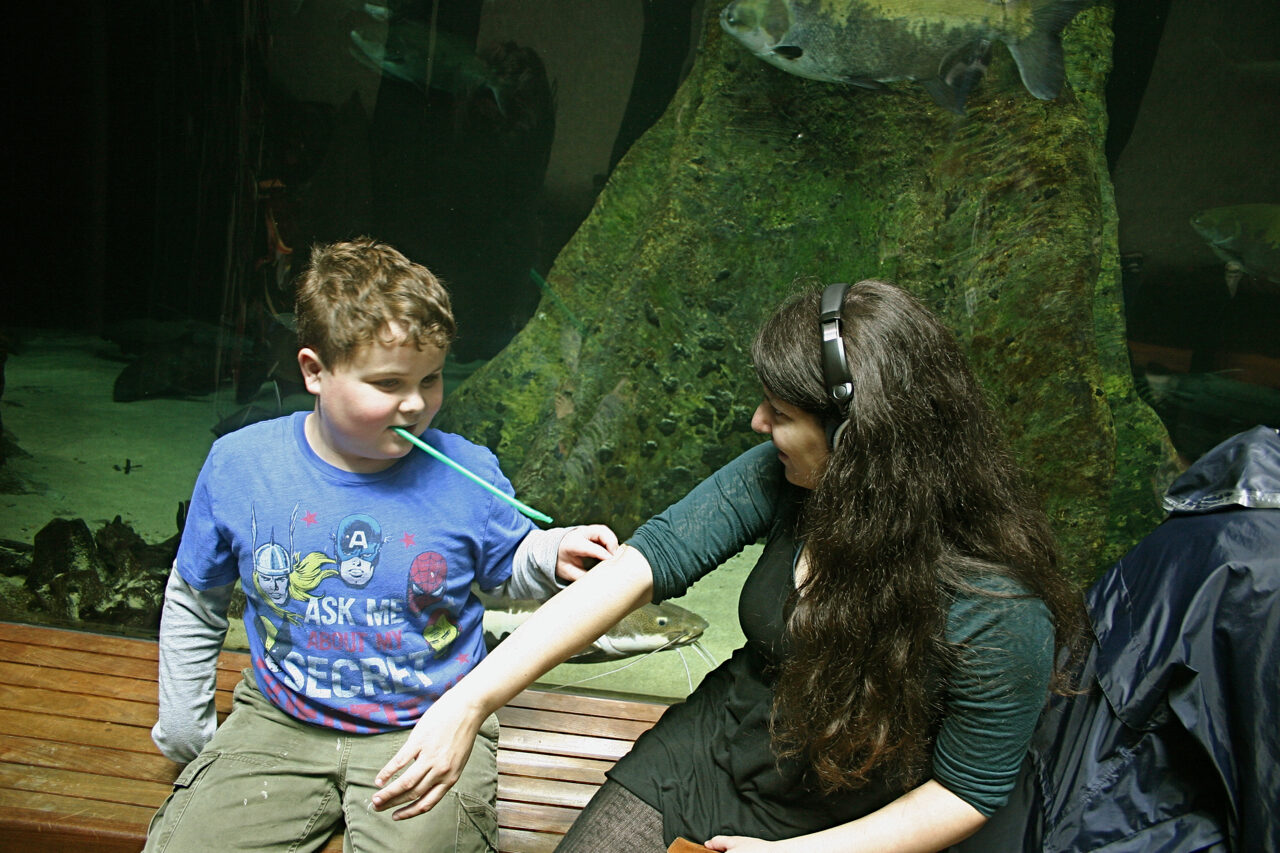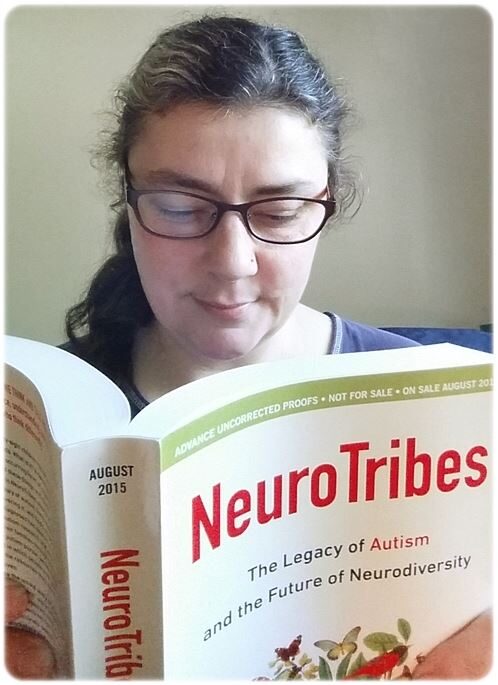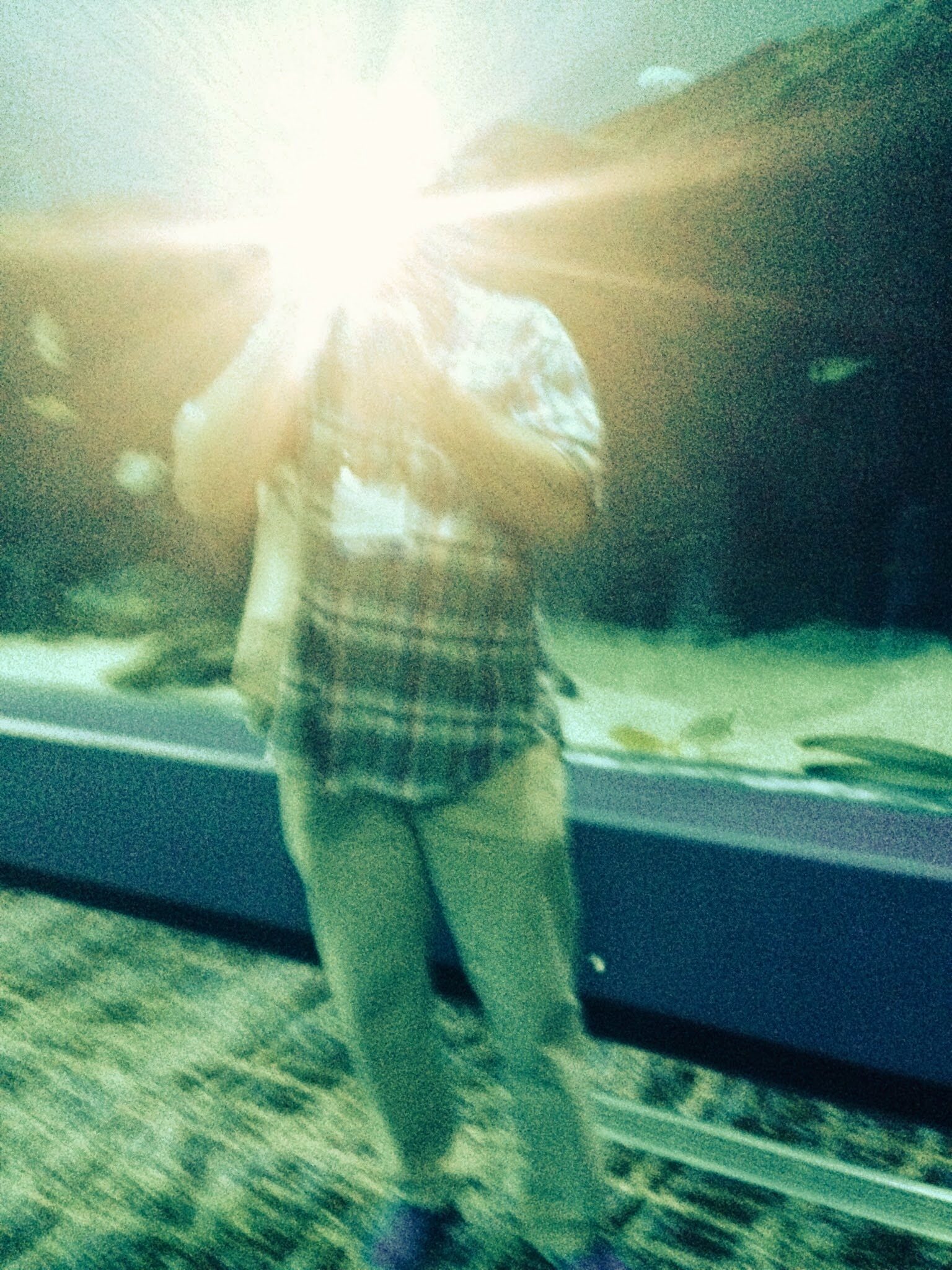TPGA is observing Autism Acceptance Month by featuring accounts from autistic people about the differences accommodations (or lack thereof) make in their lives. Today, John Elder Robison talks about why accommodation is important, yet may not be enough to help autistic people like him with co-occuring conditions such as anxiety. John Elder Robison jerobison.blogspot.com With April being Autism month, the folks at TPGA asked me to write about accommodations. How about anxiety, Shannon asked? Foolishly, I agreed. After thinking about the topic for hours, till smoke dribbled from my ears, I cannot conceive of any accommodation I could request around my anxiety. Photo © John Elder Robison [Image: Close up of water running over a rock in a stream.] For me, anxiety is one of the most disabling aspects of autism, and it’s with me — at least at a low level — most all the time. I am almost…
Tag: acceptance
For people with sensory access needs (like reactions to scented products), accommodations are not acts of good faith or favors, they are our rights!
Photo © Just Dining Chairs | Flickr / Creative Commons [Two taupe suede dining chair with blonde wood legs on a white background.] TPGA is observing Autism Acceptance Month by featuring accounts from autistic people about the differences accommodations (or lack thereof) make in their lives. Today’s example is from Aiyana Bailin, about how small accommodations changes, in this case choices regarding chairs, can have “huge results.” Aiyana Bailin restlesshands42.wordpress.com Once, at a convention of (mostly) autistic people, I observed a peculiar phenomenon. Chairs were arranged in a large circle, and perhaps 100 attendees gathered and sat. A handful of people, myself included, took their spot in the circle, but sat on the floor in front of their chair, rather than on the chair itself. This floor-sitting evoked no signs of disapproval; after all, most autistic people know that comfort doesn’t come in one-size-fits-all. But I’m used to people being…
TPGA is observing Autism Acceptance Month by featuring accounts from autistic people about the differences accommodations (or lack thereof) make in their lives. Today’s entry is a poem by Queerability founder Kris Guin, about embracing acceptance, the spectrums of intersectionality, and rejecting shame. [image: The international disability symbol, in white, on a rainbow-striped background.] Kris Guin queerability.tumblr.com Back and forth Back and forth Back and forth Back and forth Male and female Male and female Male and female Male and female One end of the spectrum To another Culture is made up of Stimming Stimming And Pride Pride in Gender Sexuality And disability Acronym LGBTQ Add D For Disability All parts of me Included Accepted Respected No fear No shame No hiding Safe Intersectionality Embrace it Honor it Celebrate it We are Here Queer And disabled
Autistic people accommodating, accepting — and having fun with — other autistic people. [image: white boy with a green straw in his mouth pinching the elbow of a white woman with long dark hair and noise-canceling headphones.] Shannon Des Roches Rosa www.thinkingautismguide.com It’s World Autism Acceptance Day, which kicks off World Autism Acceptance month. Those are not usually exciting statements for us — historically April overwhelmingly generates pity-based “autism awareness” campaigns, but we’re seeing a lot more positivity and autism acceptance this year. More acceptance is fabulous, and very welcome. Acceptance rather than mere awareness is being honored at non-autistic-centric places as diverse and cool as the United Nations, where NeuroTribes author Steve Silberman gave the #WAAD16 opening keynote; most successful company in the world Apple, which produced an Autism Acceptance video featuring a non-speaking autistic teen successfully using AAC to communicate at home, and at a regular high school;…
Patricia George-Zwicker www.persnicketypatricia.ca [Image: White woman with dark hair wearing black-rimmed glasses, and intently reading the book NeuroTribes.] When Shannon Rosa contacted me and asked if I’d be interested in doing a guest review for Steve Silberman’s highly anticipated book NeuroTribes: The Legacy of Autism and the Future of Neurodiversity, I excitedly and nervously said yes! Like so many others, I’ve been anxiously awaiting what I hoped would be a game changer for the Autism community and Autistic people. I’ve visited many book stores over the years in search of credible information or stories by people like me, especially stories and information from Autistic women. I often left disappointed and frustrated by the lack of history, compassion, accuracy and the almost non-existent input from actual Autistics like myself, finding instead a minefield of cures, desperation, martyr parents, male-dominated information and — said with respect — books about or by one…
Photo © Danny Hope | Creative Commons / Flickr [image: Small blue flag with lighter blue text reading, “YAY!”] Richard Davis I see lots of campaigns to raise “awareness,” but very few to raise “acceptance.” Some issues you may just want to raise awareness about, like signs and symptoms of certain diseases, when to see a doctor, etc. When people become “aware” of something, it is not an act or a choice. They just get information and become “aware” of it. “Acceptance,” on the other hand, is more personal. People may be “aware” of autism, but may not be “accepting” of Autistic people for who they are (hence, assuming the need to “cure” them). People may be “aware” of LGBT/Queer people, but they may not “accept” them, especially being “openly gay” in public spaces. (Guess how many times I’ve been called a ‘faggot’ just for holding hands on a date??) “Acceptance” involves a…
Amanda Forest Vivian adeepercountry.blogspot.com This post was originally included in our 2011 Dialogues series. But we think it deserves separate attention, and are republishing it with the author’s permission. —- This is just a theory, so be gentle. But I think a lot of problems between non-disabled people and disabled people might have to do with the fact that for most born-disabled people, their disability is ego-syntonic (integrated with their self-image). One! Ego-dystonic is an psych term for an aspect of a person that doesn’t fit their self-image. For example, if someone lost their legs in an accident, they would probably wake up the next day and see a body that didn’t seem to them like their real body. On the other hand, if someone is born without legs their disability is usually ego-syntonic, so they feel as attached to their body as anyone else. They don’t feel the same…
I was given the opportunity to head a “Let’s Talk About Autism” discussion for the excellent organization Voices for Vaccines, in order to help vaccine advocates understand how anti-vaccine information can be hurtful to the autistic community, and with the hope that better understanding about autism as part of pro-vaccine messaging will help spread acceptance of autistic people like my son Leo. If you missed the discussion, which was followed by a Q&A, one option is to listen to the Voices for Vaccines “Let’s Talk About Autism” recording. Or you could read the below version of the talk I gave, though the live version include some improvisation. I’ve been writing about autism at www.Squidalicious.com since 2003, when my son Leo was first diagnosed as autistic. I’m also a founding editor at Thinking Person’s Guide to Autism, where we have a very active Facebook community, and a BlogHer contributing editor for…
John Elder Robison was a discussant for the Autism Social, Legal, and Ethical Research Special Interest Group at the 2014 International Meeting for Autism Research (IMFAR). He ended up taking the group to task, stating that the autism science community is headed for disaster if it does not change course on several factors – and noting for context the larger size of the US autistic community in proportion to other minority groups such as Jewish or Native American communities. Mr. Robison asserted that autistic people need to be the ones providing oversight and governance for autism research. He condemned the use of words like “cure.” He pointed out that researchers’ explicit or implicit efforts to eradicate autistic people is a formula for disaster and needs to stop. And he affirmed that memoirs and narratives written by autistic people are more trustworthy than writing about autism by nonautistics. Many thanks to…

